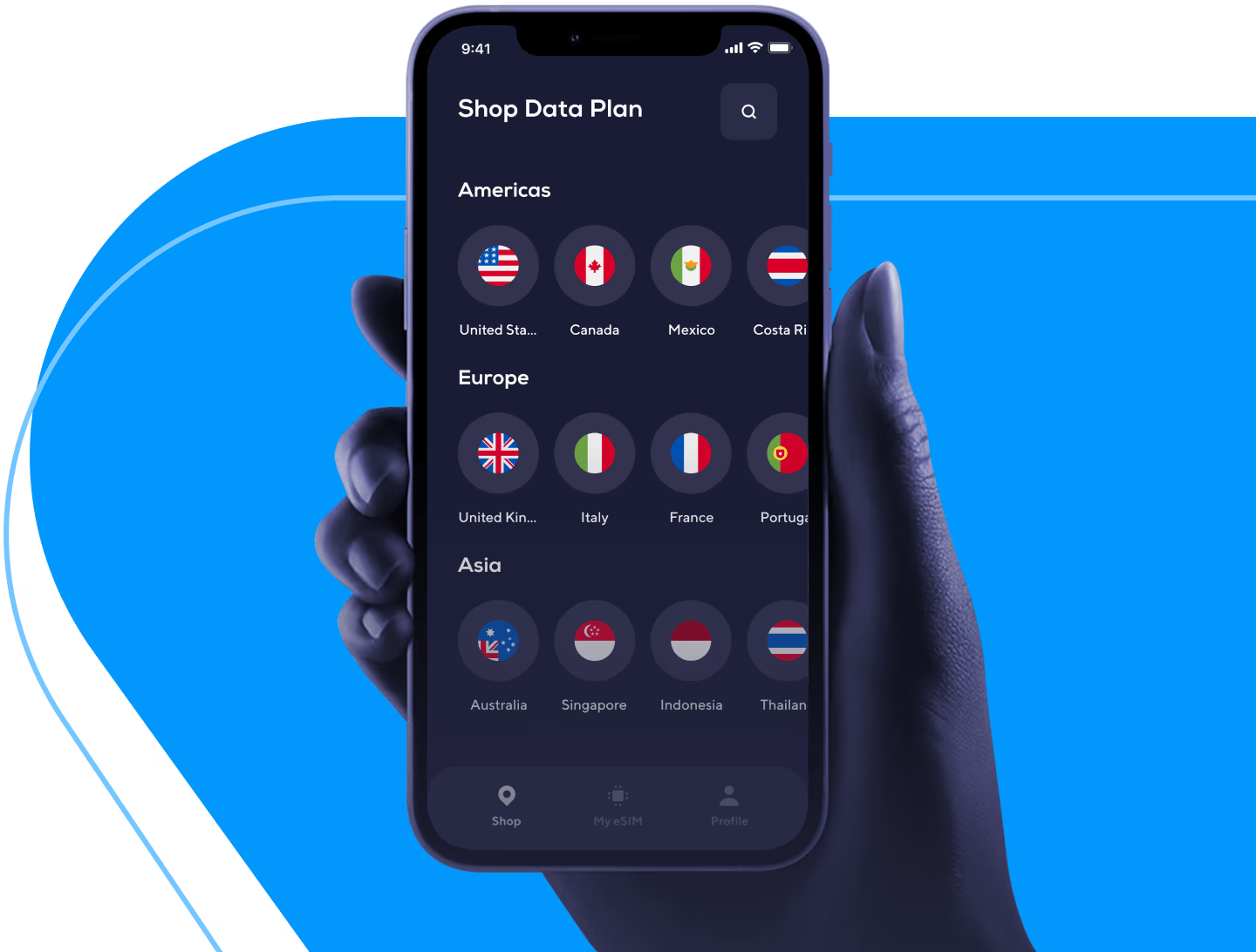
Iridium PNT ASIC: The Tiny Chip Reinventing GPS Security and Global Positioning
Iridium Communications Inc., the global satellite voice, data, and PNT provider, unveiled what it describes as a major leap forward for positioning, navigation and timing (PNT) resilience—a dedicated miniature application-specific integrated circuit (ASIC), the Iridium® PNT ASIC. The announcement signals a sharp pivot in the eSIM/roaming/travel-tech space: here is a technology that directly tackles one of the fast-emerging threats in travel, transport, telecom, and IoT—namely, GNSS jamming and spoofing.
This chip is engineered for seamless integration across consumer, industrial and government devices. Measuring only 8 mm × 8 mm, the Iridium PNT ASIC is built to deliver authenticated, pole-to-pole PNT data via the Iridium satellite network—effectively positioning it as a resilient alternative to conventional GNSS systems like Global Positioning System (GPS).
Iridium CEO Matt Desch was clear:
“This is a first. To provide this type of capability on a global basis has never been done before. The size, low cost, and scalability of this solution to protect GPS is a major breakthrough.”
Why the Threat to GNSS Has Shifted From Occasional to Constant
The backdrop here is critical, especially for the travel-tech audience at Alertify. What used to be a fringe concern—GNSS interference—is now becoming mainstream risk. For example, recent high-profile incidents include the reported jamming of Ursula von der Leyen’s aircraft navigation system in September 2025, and GNSS malfunction in maritime zones off Qatar in October 2025. Investing.com+1 In a September 2024 report, OPSGROUP cited a 500 % increase in spoofing of commercial airliners — roughly 1,500 flights per day encountering GPS spoofing.
The economic consequence is staggering. A one-day outage of GPS services in the U.S. in 2019 was estimated by National Institute of Standards and Technology (NIST) to cost roughly US $1 billion; inflation-adjusted to 2025 perhaps over US $1.3 billion in a day.
From a travel-tech and roaming standpoint, devices relying on GNSS (everything from smartphones, wearables, IoT modules, drones to maritime, aviation and logistics gear) now face the risk of service disruption, mis-location, or timing errors. The urgency for an integrated, simple, resilient backup (or alternative) to GPS is therefore more than theoretical—it’s commercial, infrastructural and strategic.
What the Iridium PNT ASIC Brings to the Table
Tiny form-factor, big claims: At just 8 mm × 8 mm, the Iridium PNT ASIC is small enough to embed in consumer gadgets, industrial sensors, infrastructure nodes (power grid, telecom, transport), and telecom networks.
Authenticated signal from space: The chip receives a cryptographically secure time & location signal from Iridium’s satellite constellation—claimed by Iridium to be “1,000 times more powerful than GPS” and capable of working indoors.
Resilience built-in: It continuously verifies signal integrity, and because it sidesteps many of the vulnerabilities of traditional GNSS, it offers a truly global alternative to GPS, especially in environments where spoofing, jamming or timing interruption are risks.
Market timing & access: Iridium is offering beta trials now (evaluation kits) and plans commercial availability of the ASIC in mid-2026.
Use-cases abound: Iridium lists applications across financial markets, governments, telecom (5G), aviation, maritime, land-mobile, IoT and critical infrastructure. For example, Iridium’s recent contract with T‑Mobile US to deploy Iridium PNT receivers to 90 live 5G network sites under the U.S. DOT’s CPNT (Complementary PNT) initiative is a sign of real commercial traction.
From a travel-tech/roaming perspective, what this means is: connectivity devices that roam globally, assets that move across borders, infrastructure that must maintain PNT consistency regardless of local GNSS threats—all have a credible backup option.
The Broader Landscape & Competitive Context
It’s important to view Iridium’s move in the context of the broader ‘alternative PNT’ (A-PNT) market. Government and industry are clearly signalling that GNSS alone is no longer sufficient. For example, the European Commission Joint Research Centre (JRC) in a 2023 report noted the urgent need for GNSS alternatives in Europe, given jamming/spoofing risks to critical infrastructure.
Market projections place the alternative PNT market at about US $3.5 billion by 2032, driven by demand for secure, reliable timing and location across sectors. Iridium cites this figure in its announcement.
Competitors and peers are also active: other terrestrial or hybrid PNT systems (terrestrial signals, inertial + divertised sensors, “signals of opportunity”) are emerging. For example, an article on aerospaceglobalnews noted that alt-PNT is evolving into “layered, hybrid systems” drawing from multiple sources beyond GNSS.
Thus, while Iridium’s ASIC is a noteworthy leap, it is not operating in a vacuum. Success will depend on ecosystem adoption (chip inside equipment, services tied to it, certification, cost) and how it compares to other A-PNT players in terms of cost, integration ease, global scalability.
What This Means for Travel-Tech, Roaming & eSIM Ecosystems
From your vantage point at Alertify (travel tech media, eSIM/SIM/roaming specialists) the implications are significant:
- Resilient connectivity becomes a differentiator: Devices marketed for travel (global IoT, roaming eSIM modules in wearables/luggage trackers, maritime connectivity for cruise/hospitality) often rely on GNSS for location and timing. Embedding a chip like Iridium’s opens a new value-proposition: “Protected from spoofing/jamming globally”.
- Roaming infrastructure tie-ins: Telecommunication networks in roaming mode (e.g., SS7, signalling, LTE/5G roaming) require precise timing. A dedicated resilient PNT chip might become part of the value proposition for carriers and eSIM providers targeting global travellers or OEMs.
- Hospitality, transport & logistics ecosystems: For hotels, airlines, cruise lines, rental fleets—assets that move across jurisdictions and require reliable PNT for safety, tracking, scheduling—the availability of a compact alternative to GNSS increases options.
- B2B content & affiliate opportunities: You could consider profiling this technology in your B2B articles, linking to providers that adopt or integrate it, offering affiliate angle with module/OEM vendors.
- Teaching & thought-leadership: For your strategy of building authority, explaining PNT threats and how technologies like this mitigate them (in plain, travel-tech language) positions Alertify as at the forefront of connectivity risk resilience.
Conclusion: A Real Step Forward — But Not a Silver Bullet
Iridium’s launch of the PNT ASIC is undeniably a bold move: a miniaturised, globally capable, authenticated PNT signal source intended to tackle jamming, spoofing and timing interruptions. In the current climate of rising GNSS risk, the device addresses a very real problem, and its global reach (via Iridium’s LEO constellation) gives it legitimacy.
However, from a strategic viewpoint it must be seen with a balanced lens. Integration into devices, cost-structures, ecosystem adoption (chip makers, module vendors, device OEMs), regulatory & certification regimes (especially for aviation/maritime/critical infrastructure), and competition from other A-PNT systems will determine how fast it becomes mainstream.
For travel-tech professionals and roaming specialists, the emergence of such a chip signals that positioning, navigation and timing is moving from “nice to have” backup to “must-have” resilience layer in the global connectivity stack. As eSIM, SIM and roaming services proliferate, the network and device ecosystem will increasingly demand protections beyond mere connectivity—into trusted, resilient PNT.
In short: Iridium has raised the bar. The key now is execution—how quickly the architecture is embraced, how broadly it is embedded in travel-tech hardware, how cost-effectively it scales. This development provides a timely, high-value topic to explore: how global connectors (travellers, nomads, devices) might soon demand “jamming/spoofing-proof” PNT as part of their connectivity tool-kit.












